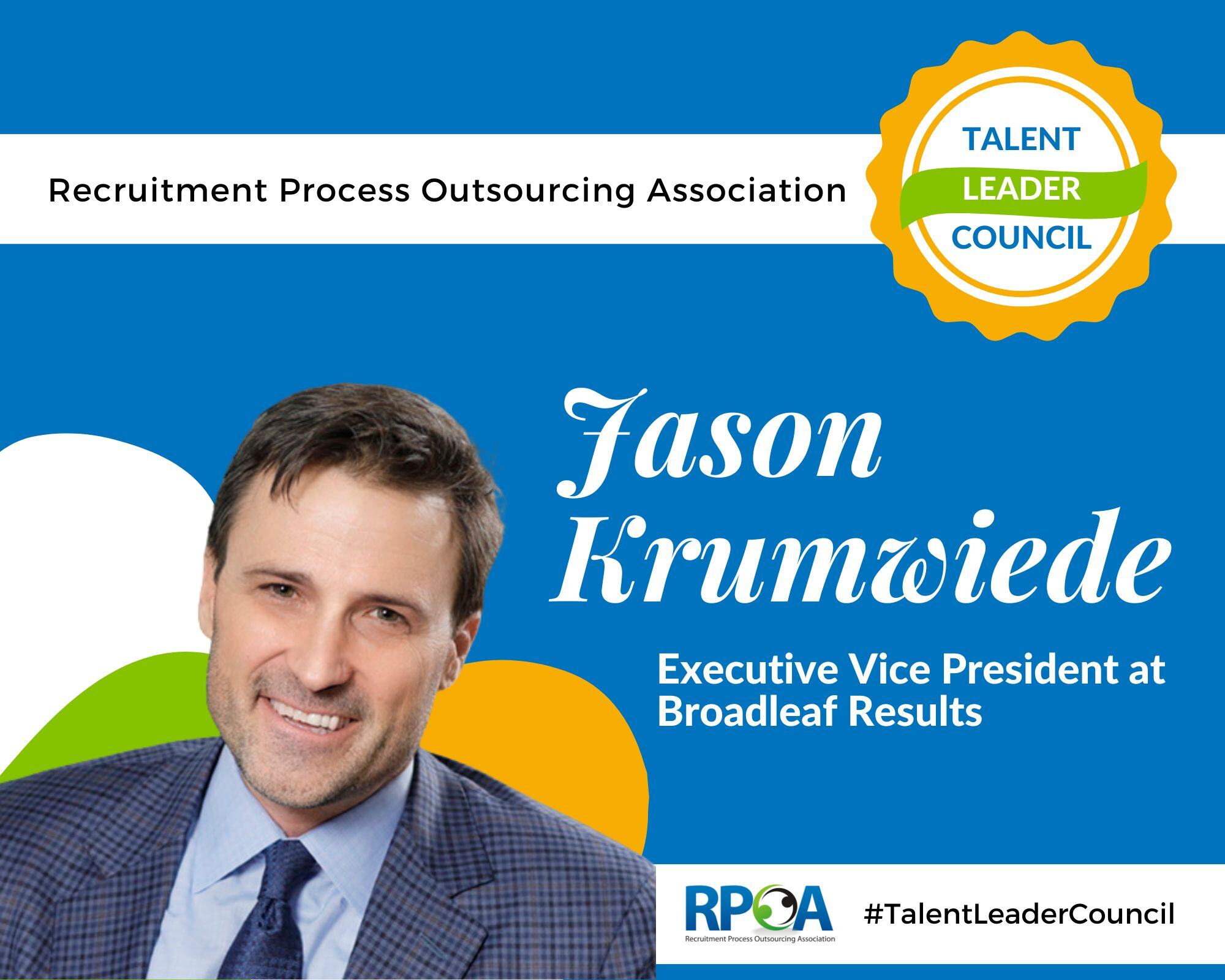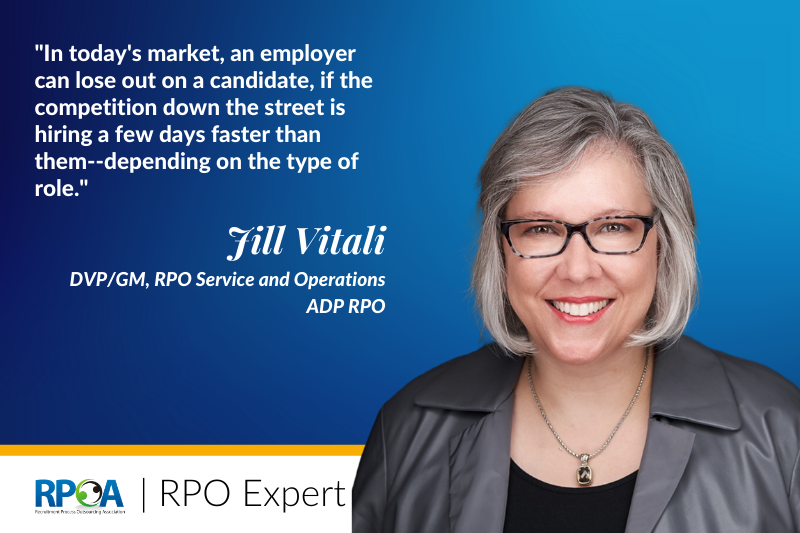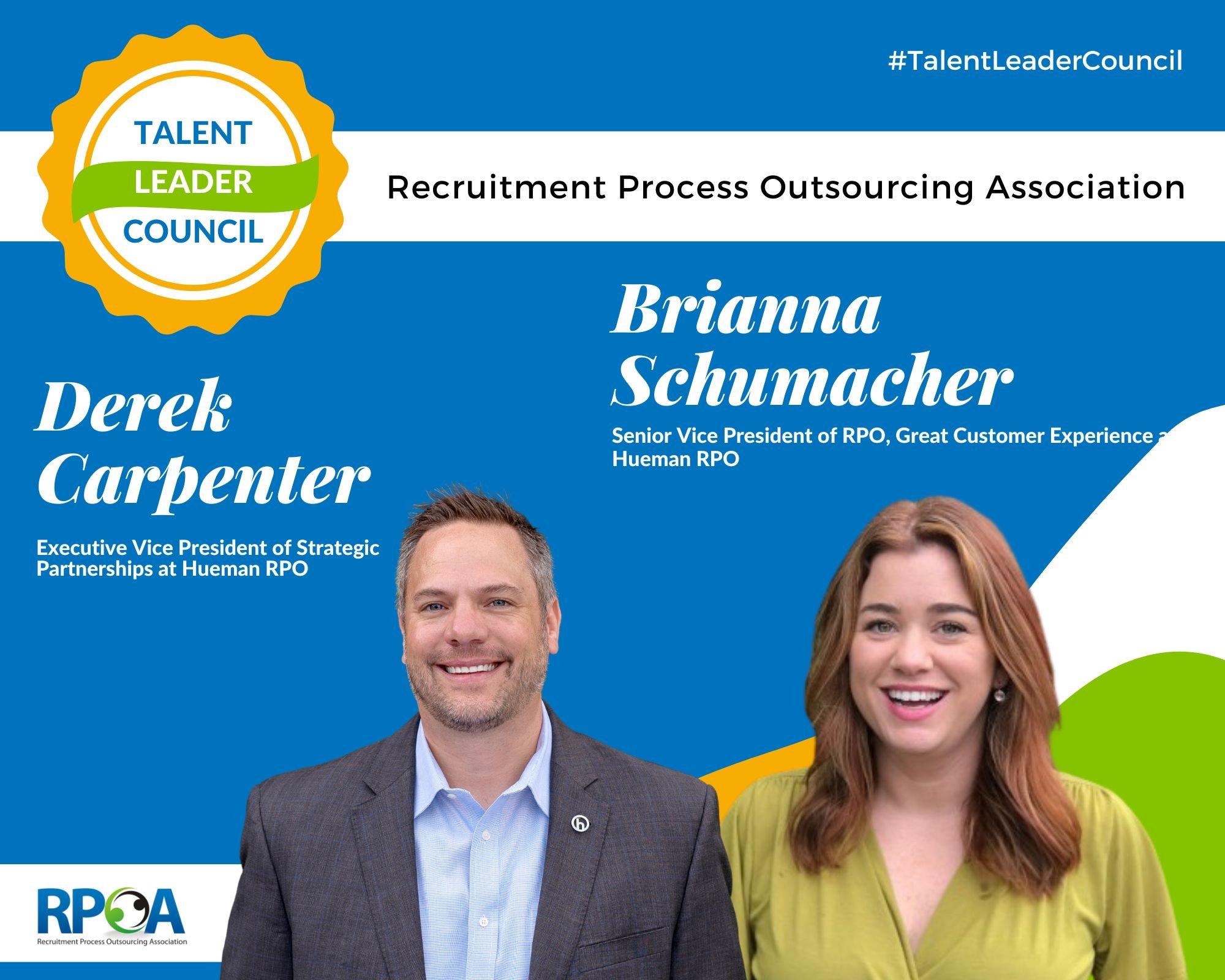
Recruitment Process Outsourcing (RPO) can be a valuable solution for companies wanting to simplify their talent acquisition process and achieve their business goals. Through RPO partnerships, employers gain the expertise of recruitment professionals focused solely on their hiring needs.
In this Talent Leader Council post, the RPOA interviews Chelsea Johnson, Senior National Recruiting Manager at Empower Partnerships, to explore how employers can specifically benefit from partnering with RPO. From her experience managing exempt-level recruiting, Chelsea discusses the value RPOs provide in areas like strategy, technology tools, diversity recruiting, and relationship building. Her perspectives show how strategic RPO partnerships can optimize the hiring function and drive successful business outcomes.
RPOA: What are some benefits of partnering with an RPO provider?
Chelsea Johnson: For small to midsize companies without a robust talent acquisition department, an external recruiting partner can provide a full-cycle recruiting strategy that includes advertising, vetting candidates, attracting talent, updating job descriptions, and revamping career pages. For larger organizations with a talent acquisition team and high volumes, RPO can help streamline and organize the talent acquisition process.
RPO partnerships have been critical to the success of companies with an entire talent acquisition team that needs the freedom to dedicate the time, effort, and detail to recruit talent at a high volume. RPO providers are not just service providers; they are subject matter experts who can take ownership of the recruiting piece and manage the tools used to assess candidates, implement new processes and procedures, and develop robust interview guides with scorecards to evaluate talent based on specific core competencies to help companies efficiently find quality candidates.
Q: Can you share examples of technology you might use to improve hiring results for your clients?
Johnson: We offer customized solutions tailored to the needs of our clients, using a wide range of technology throughout every stage of the recruitment process. Our sourcing AI tools help us find candidates matching specific job descriptions or keywords. We also use evaluation tools to assess skills across various areas, such as Excel, technology, customer service, admin, and project management. We use assessments to evaluate cognitive and behavioral abilities based on the key behaviors and attributes we're looking for in a candidate. We work with hiring teams to identify the behaviors of successful candidates for a given role. Our screening process includes background checks, drug screens, credit checks, and other relevant checks. We're able to customize our approach to meet the specific needs of our clients, whether that involves working with government clients with strict clearance requirements or tailoring our approach in other ways.
Q: Recruitment process outsourcing is a strategic and consultive solution. How does Empower support its client’s strategic objectives?
Johnson: While we do not have a specific diversity or DEI division, we're currently partnering with a client to develop processes for diversity recruitment. The client has no diversity recruiting processes, so we are in the initial stages of brainstorming and creating processes. These processes will target specific diversity job boards and use inclusive language in job descriptions. Additionally, we're putting together an interview flow process that ensures consideration of the diversity of external candidates. The aim is to encompass the diversity of talent and target diverse job boards externally.
Q: What are some best practices for a successful RPO partnership?
Johnson: For a successful RPO partnership, RPO providers must do a few things. The first is taking the initiative to get to know your client. It is essential to recognize that people are on the other end of what we do, which should be easy for recruiters. However, sometimes, hiring managers are hesitant to change. When a company hires an RPO, there is often resistance, so building these relationships and knowing what's essential to the client is vital. These relationships include the client who hired you as an RPO and the client's hiring managers you work with daily. Setting up recurring touchpoints is essential to define expectations on both ends, including those of the client and the RPO. Building trust by adding value is also crucial, as is being the subject matter expert, making their lives more accessible, and taking on the bulk of the recruiting process. Understanding expectations allows hiring managers and clients to focus on operations and internal tasks. Understanding what they're looking for in a partnership, delivering results, owning mistakes, and learning from them are also necessary. Being proactive and providing specific insights on areas that could make the company more profitable, efficient, and cost-effective from a recruiting standpoint are things our clients value most.
Q: What’s the role of regular communication and reporting in increasing client satisfaction?
Johnson: I believe staying in touch and reporting are two distinct things. Both are essential and contribute to building a solid relationship. Our communication with our clients is a crucial aspect of our service. We communicate with them daily and frequently, and we contact our clients multiple times daily.
Reporting is also vital, and we have a dedicated team for this. We provide recurring reports, such as weekly reports highlighting the week's activities and Wednesday reports showcasing the previous week's successes. Additionally, we have team-specific reporting based on the regions or positions we support, monthly or quarterly reports highlighting growth or change, and end-of-week reports providing information on open positions, candidates, and opportunities. We offer a range of reports that cover the entire recruitment process, metrics, data, and ad hoc reporting as needed. For instance, if the client needs compensation data for a particular role in a specific region, we provide them with the relevant reports. We also manage information such as the number of hires, turnover per position, and the time to fill a position per quarter.
Conclusion
RPO can be a valuable solution for companies of all sizes and industries to simplify their talent acquisition process and achieve their business goals. With the help of RPO partnerships, employers can gain the expertise of recruitment professionals who focus solely on their hiring needs. Using customized solutions and technology tools, RPOs can streamline and organize the talent acquisition process, optimize the hiring function, and drive successful business outcomes. The key to a successful RPO partnership is building strong relationships, understanding expectations, delivering results, and being the subject matter expert. Through regular communication and reporting, RPO providers can increase client satisfaction and add value to their clients' operations.














